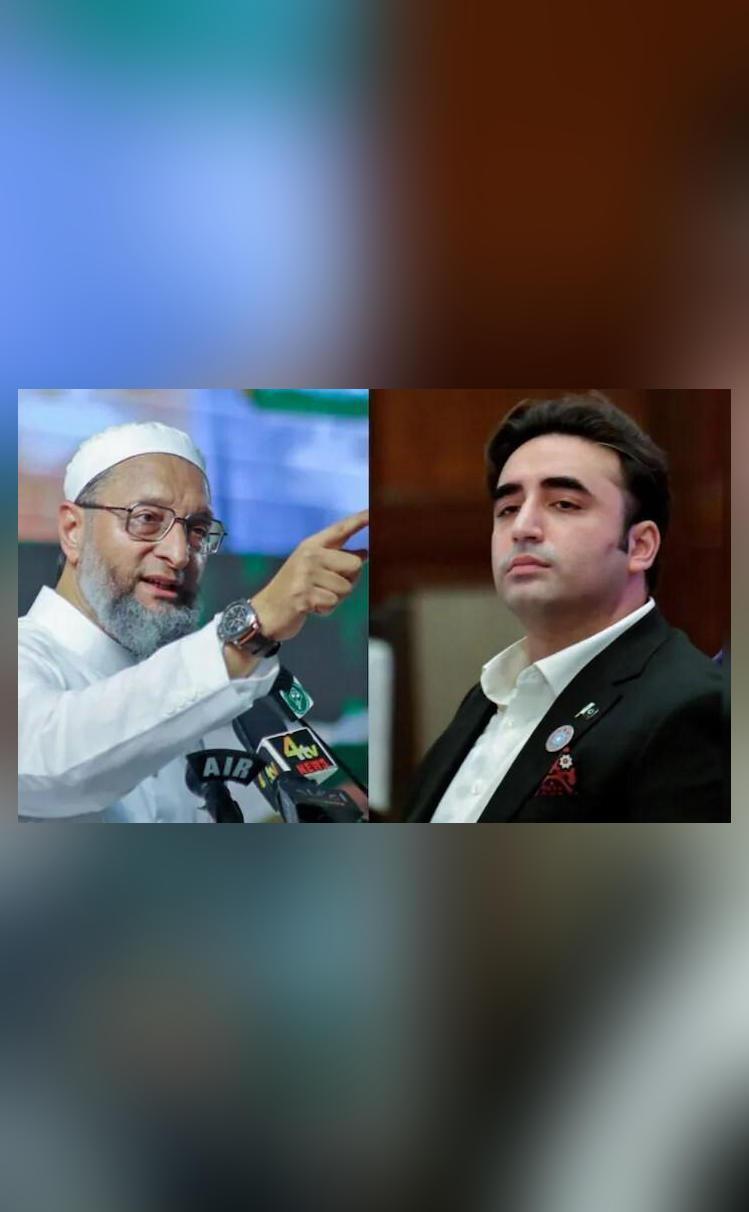
You Can’t Run Pakistan Without US Help & You’re Trying to Stare Us Down: Owaisi to Bhutto
The ongoing political tensions between India and Pakistan have been escalating rapidly, with both countries trading barbs and accusations. In the latest development, AIMIM chief Asaduddin Owaisi has fired a fresh salvo at Pakistani politician Bilawal Bhutto, saying that Pakistan cannot run the country without the help of the United States and that Bhutto is trying to stare India down.
Owaisi’s remarks come in response to Bhutto’s earlier statement in which he threatened, “Indus is ours…either our water will flow…or their blood.” Bhutto’s statement was seen as a veiled threat to India, particularly in the context of the recent Pahalgam attack in which a Pakistani terrorist was killed.
In an interview with NDTV, Owaisi slammed Bhutto’s statement, saying, “Unless US gives you something, you cannot run the country and you’re trying to stare us down.” He also took a personal dig at Bhutto, saying, “Terrorism killed your mother…If he doesn’t get that, what will you explain to him?”
Owaisi’s comments are a clear indication that he is not impressed with Bhutto’s bravado and that he believes Pakistan is heavily dependent on foreign aid, particularly from the United States. Pakistan has been facing economic woes and has been seeking financial assistance from the US and other countries to bail out its ailing economy.
It is worth noting that Bhutto’s statement was seen as a threat to India, particularly in the context of the ongoing border tensions between the two countries. The Pahalgam attack in which a Pakistani terrorist was killed had sparked tensions on the border, with both countries accusing each other of ceasefire violations.
Owaisi’s remarks are also seen as a warning to Pakistan that it cannot afford to indulge in belligerent rhetoric and that it needs to focus on its internal problems rather than trying to provoke India. Pakistan has been facing several internal challenges, including economic instability, terrorism, and political instability, and Owaisi’s comments suggest that he believes Bhutto’s statement is a diversionary tactic to distract from these issues.
The tensions between India and Pakistan have been escalating rapidly in recent years, with both countries trading barbs and accusations. The recent Pahalgam attack had sparked tensions on the border, with both countries accusing each other of ceasefire violations.
In recent years, Pakistan has been facing several challenges, including economic instability, terrorism, and political instability. The country has been seeking financial assistance from the US and other countries to bail out its ailing economy.
Owaisi’s remarks come in the context of these challenges and suggest that he believes Bhutto’s statement is a threat to India’s security and stability. The AIMIM chief has been a vocal critic of Pakistan’s military establishment and has accused it of supporting terrorist groups.
It is worth noting that Owaisi’s comments are not without precedent. In recent years, several Indian politicians and experts have highlighted Pakistan’s dependence on foreign aid, particularly from the US. The country has been receiving significant financial assistance from the US and other countries, and some experts believe that this aid is being used to fuel terrorism and instability in the region.
In conclusion, Owaisi’s remarks are a clear indication that he is not impressed with Bhutto’s bravado and that he believes Pakistan is heavily dependent on foreign aid, particularly from the US. The AIMIM chief’s comments are also a warning to Pakistan that it cannot afford to indulge in belligerent rhetoric and that it needs to focus on its internal problems rather than trying to provoke India.






